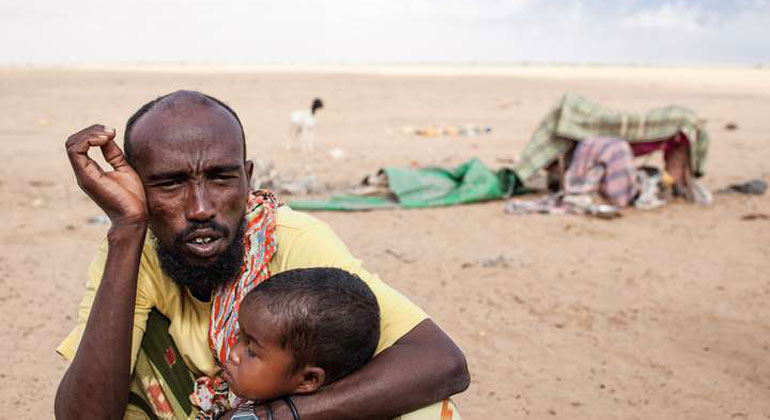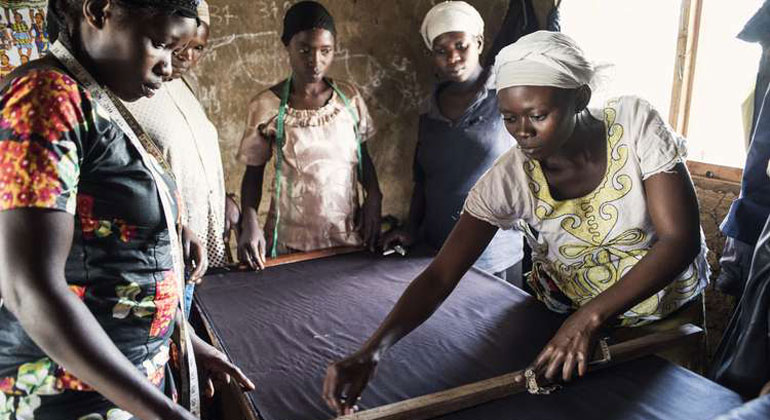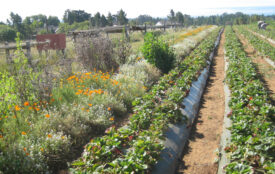Wars and Climate Change are the Greatest Challenges for Combating Hunger
Welthungerhilfe Presents its 2018 Annual Report
The effects of wars and climate change determined the work of Welthungerhilfe in 2018. The number of people suffering from hunger around the world has increased in recent years along with the number of refugees. Violence has displaced an increasing number of people, and climate change has robbed more people of the livelihoods that guarantee their sustainable nutrition and security. “Many people have no more reserves or
resilience left to deal with increasingly extreme weather.
Droughts, floods and storms are destroying fields and animals, and increasing hunger. The poorest people in the South bear the brunt of a problem that is principally caused by the rich countries of the North. Fighting climate change is a question of justice. There are enough resources to feed everyone adequately”, stresses Marlehn Thieme, President of Welthungerhilfe.
The poor security situation in many project countries makes it harder to reach people in need, and poses great challenges for Welthungerhilfe. “Entire regions are cut off from the outside world during conflicts, and the warring parties prevent import and transportation of aid supplies. Schools and hospitals are targeted for bombing. Although there is an increasing need for assistance worldwide, the working conditions for our staff are becoming more dangerous, and the support options for people in need are becoming increasingly restricted”, warns Mathias Mogge, Secretary General of Welthungerhilfe.
In 2018, Welthungerhilfe had 213.6 million euros to spend on the fight against hunger and poverty. 54.9 million euros came from private donations received. Public donors provided 155.4 million euros for project work. The proportion coming from the German federal government was over 50 percent, the largest individual donor being the German Federal Ministry for Economic Cooperation and Development (BMZ), which provided 38.6 million euros. Burundi, Liberia and Syria / Turkey received the largest amount of project support.
- Figures, facts, photos and graphics are available in the digital press kit at www.welthungerhilfe.de/presse
- Jahresbericht 2018 (german) (PDF)
- Jahresbericht 2018 | Kurz & Knapp (german) (PDF)









